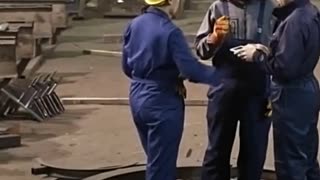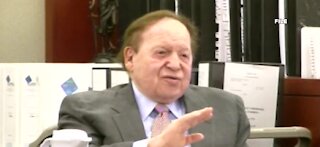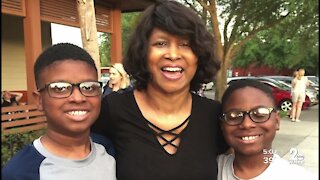Premium Only Content

Cancer: It Takes a Village—Insights from Shervin Takyar, MD, PhD
What allows a cancer cell to proliferate and metastasize? Is cancer a product of evolutionary selection? How do the leading hypotheses in cancer research apply specifically to lung cancer?
Tune in for the answer, and discover:
Whether the pathway that allows an injured cell to survive could be the same or similar pathway for cell proliferation and the development of cancer
Which two factors are universally recognized as risks for lung cancer, and under what circumstances non-smokers might get lung cancer
How cell-to-cell signaling between different cells plays a role in the development of cancer
Shervin Takyar is an associate professor at Yale School of Medicine and practicing pulmonologist who joins the show to discuss his experience with cancer, both in research and in the clinic. His work is focused primarily on endothelium, which is an important part of the tumor microenvironment, and also on what happens before cancer develops, rather than what to do once it has.
What factors predispose a person to develop cancer? And which individuals are likely to develop recurrence or resistance to cancer therapies? Takyar answers a number of compelling questions, and in the process, explains what he believes to be the common denominator of all cancers, and how cancer might be viewed as the product of cycles of evolutionary selection.
He also discusses how the seed-and-soil theory applies to lung cancer, cell-to-cell signaling, where primary lung tumors tend to spread and why, ongoing research looking at advanced lung tumor samples, field cancerization, what makes a tumor successful, whether there are epigenetic markers that can tell which patients have higher tolerance for tumor cells, and more.
-
 0:39
0:39
FGP
13 days ago📢 Why Are Insurance Rates Skyrocketing? 💸📈
551 -
 6:53
6:53
KTNV
4 years agoCancer survivor takes on reality show doctors
1001 -
 0:25
0:25
KTNV
4 years agoLV Sands CEO takes medical leave due to cancer
43 -
 1:02
1:02
WMAR
4 years agoMaryland breast cancer survivor takes part in COVID-19 vaccine trial
106 -
 1:23
1:23
Colin Talks Crypto
4 years agoTwitter Takes Orders from the Government.
1K -
 6:33
6:33
HMItv
4 years ago $0.01 earnedLady Healed from Cancer | Deon Hockey Throwback
157 -
 0:22
0:22
ViralHog
4 years ago $0.03 earnedCat Takes Bites from Box
268 -
 0:34
0:34
Buri0416_raccoon
4 years agoRaccoon takes turns getting a massage from his mother.
3782 -
 2:00
2:00
Buri0416_raccoon
4 years agoRaccoon takes meat from their mothers with a fork.
1201 -
 4:08
4:08
Just the News
4 years agoCelebrity left rejoices in Limbaugh's death from cancer
29.7K76